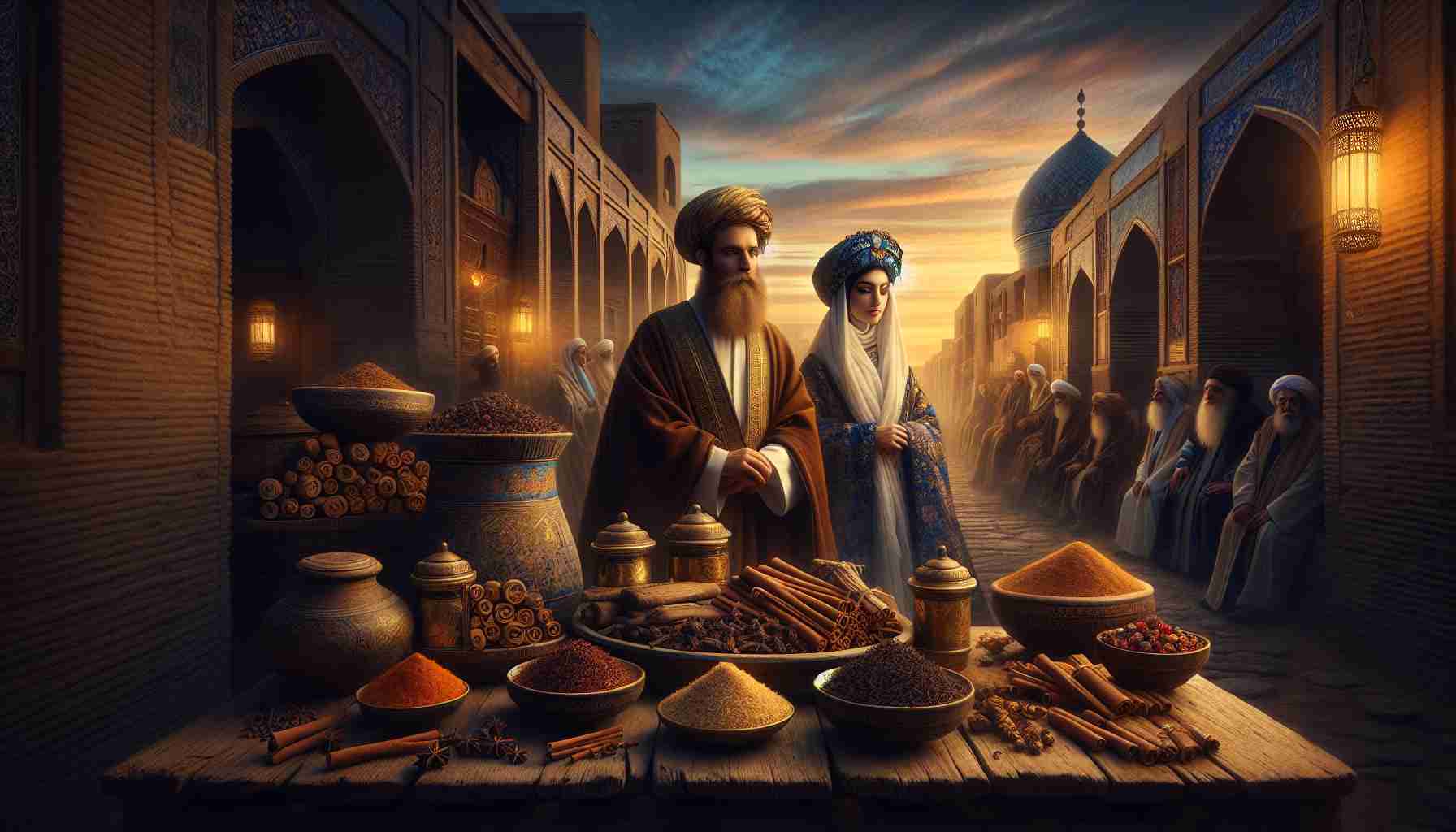

I wasn’t a nobleman or a soldier—just a spice seller’s apprentice in Shushan, the royal city. Most days, I crushed myrrh and cinnamon until the scent clung to my skin. But the day the king’s decree was posted, not even the strongest perfumes could cover my fear.
The law had come from Haman, the king’s most trusted advisor: all Jews, young and old, would be destroyed on the thirteenth of Adar.
I remember my master dropping a jar of cloves. “Fear has come for us,” he whispered.
After that, everything changed.
Neighbors we once traded with stopped looking us in the eye. I stopped smiling. Stopped going to the market. All I could do was listen. Some said Mordechai—the wise Jewish elder at the palace gate—was fasting and praying. Others whispered that Queen Esther, his cousin, was preparing to risk everything. She was a Jew too, though almost no one knew.
“Why would she speak to the king?” I asked my mother as she lit the Sabbath candles.
“Because we don’t leave each other behind,” she said.
But it still felt like the whole city was holding its breath, waiting for the darkness to fall.
Then, one morning, I saw Mordechai—dressed in royal robes of blue and white, with a golden crown on his head. “The king has honored the Jews!” someone shouted. A second decree had been issued. We were allowed to defend ourselves.
The fear shifted.
When the thirteenth of Adar came, we stood together—not trained soldiers, just sons and daughters, neighbors and cousins. We didn’t fight to win. We fought to live.
Afterward, the city was quiet—not with dread, but with relief.
The next day, we gathered to celebrate. We shared food and gave gifts. And for the first time in weeks, I heard laughter echo through the streets. The story was read aloud—how Esther risked her life to stand before the king, how Mordechai refused to bow to evil, how the day meant for our destruction became our deliverance.
We called it Purim—named for the lots Haman cast to choose our end.
Now, every year, I help prepare the spices for the Purim feast. I watch children run through the streets dressed as Esther and Mordechai. And I remember.
Not just the joy. But the risk that came before it.
Esther stepped forward when she could have stayed silent. And because of that, we still celebrate.
And even now, as I grind the spices, I remember what nearly crushed us—and why we still stand.
I wasn’t a nobleman or a soldier—just a spice seller’s apprentice in Shushan, the royal city. Most days, I crushed myrrh and cinnamon until the scent clung to my skin. But the day the king’s decree was posted, not even the strongest perfumes could cover my fear.
The law had come from Haman, the king’s most trusted advisor: all Jews, young and old, would be destroyed on the thirteenth of Adar.
I remember my master dropping a jar of cloves. “Fear has come for us,” he whispered.
After that, everything changed.
Neighbors we once traded with stopped looking us in the eye. I stopped smiling. Stopped going to the market. All I could do was listen. Some said Mordechai—the wise Jewish elder at the palace gate—was fasting and praying. Others whispered that Queen Esther, his cousin, was preparing to risk everything. She was a Jew too, though almost no one knew.
“Why would she speak to the king?” I asked my mother as she lit the Sabbath candles.
“Because we don’t leave each other behind,” she said.
But it still felt like the whole city was holding its breath, waiting for the darkness to fall.
Then, one morning, I saw Mordechai—dressed in royal robes of blue and white, with a golden crown on his head. “The king has honored the Jews!” someone shouted. A second decree had been issued. We were allowed to defend ourselves.
The fear shifted.
When the thirteenth of Adar came, we stood together—not trained soldiers, just sons and daughters, neighbors and cousins. We didn’t fight to win. We fought to live.
Afterward, the city was quiet—not with dread, but with relief.
The next day, we gathered to celebrate. We shared food and gave gifts. And for the first time in weeks, I heard laughter echo through the streets. The story was read aloud—how Esther risked her life to stand before the king, how Mordechai refused to bow to evil, how the day meant for our destruction became our deliverance.
We called it Purim—named for the lots Haman cast to choose our end.
Now, every year, I help prepare the spices for the Purim feast. I watch children run through the streets dressed as Esther and Mordechai. And I remember.
Not just the joy. But the risk that came before it.
Esther stepped forward when she could have stayed silent. And because of that, we still celebrate.
And even now, as I grind the spices, I remember what nearly crushed us—and why we still stand.